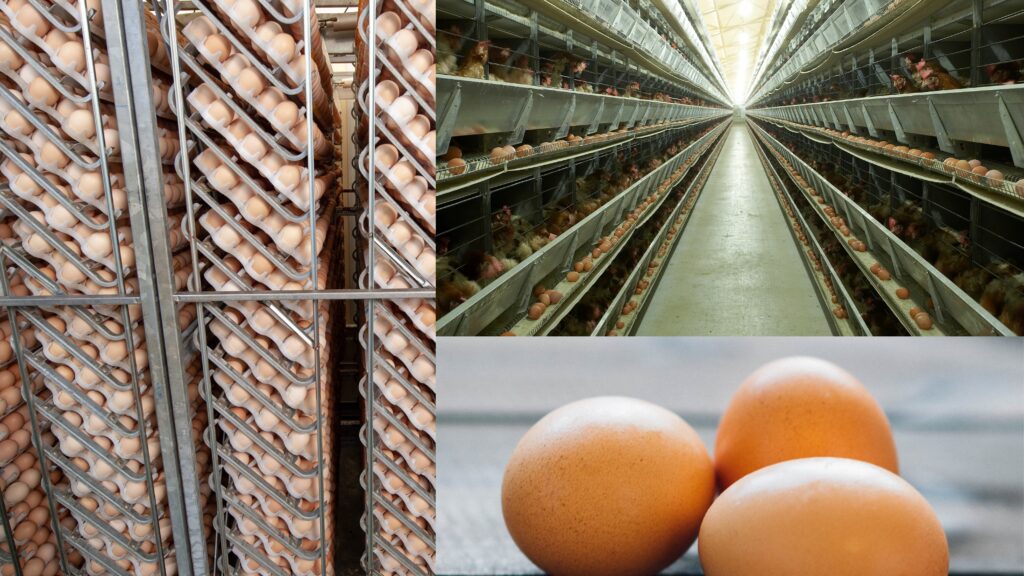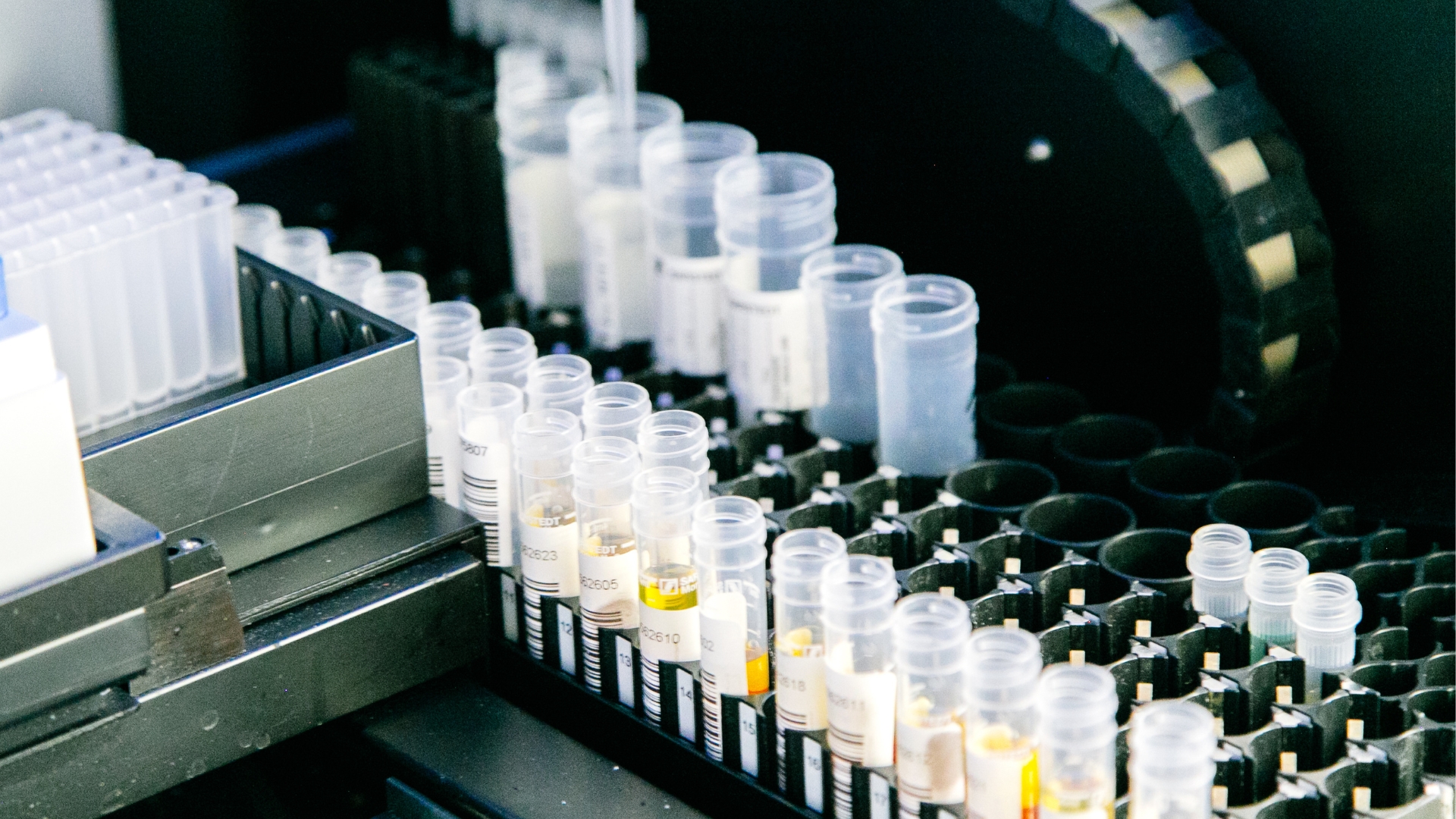Newcastle Disease Pilot Study
At Informiton, we understand the limitations of current methods in tackling Newcastle Disease (ND). That’s why we’ve developed a breakthrough technology aimed at transforming poultry health. Through our collaboration with private farms, we conducted multiple pilot studies to test our innovative approach.
Background
What is Newcastle Disease (ND)?
Newcastle Disease (ND) is a contagious viral infection that affects a variety of bird species, most notably poultry. Caused by the Newcastle disease virus (NDV), this disease poses significant risks to the poultry industry, leading to economic losses through reduced productivity and, in severe cases, death in birds. The disease is characterized by symptoms such as respiratory distress, digestive issues, and neurological disorders. Newcastle Disease can spread rapidly, making early detection and control measures critical in preventing outbreaks
What are the treatment options?
Newcastle Disease (ND) has no cure. The primary control methods for Newcastle Disease remain vaccination and biosecurity measures. Vaccination plays a crucial role in preventing outbreaks, while quarantine, culling, and supportive care help manage the disease when outbreaks occur. Although treatment options are limited, ongoing research may offer new solutions in the future.
Are there any emerging treatments and research?
Antiviral drugs: Studies are being conducted to identify antiviral drugs that may help in reducing the severity or duration of the disease in infected birds.
Gene editing and advanced vaccine technologies: Efforts to develop more effective vaccines through gene editing technologies are underway, which may provide better protection with fewer side effects.
In Summary
No Cure: Currently, Newcastle Disease has no specific cure.
Vaccination Challenges: While vaccines are available, they are not always 100% effective and can be costly to administer, particularly in large poultry operations.
Gene Editing Limitations: Even with advances in gene editing, the development of vaccines or treatments could result in genetically modified organisms (GMOs), which may not be acceptable in all markets or farming practices.
Introducing Sentinel X: A Breakthrough in Tackling Newcastle Disease
In a series of pilot studies, we introduced SENTINEL X technology to poultry farms, with a focus on Newcastle Disease. In each farm, we selected conditionally identical chicken houses.

The farms selected were geographically scattered and SENTINEL X monitoring covered multiple cycles until outbreaks were reported in the region
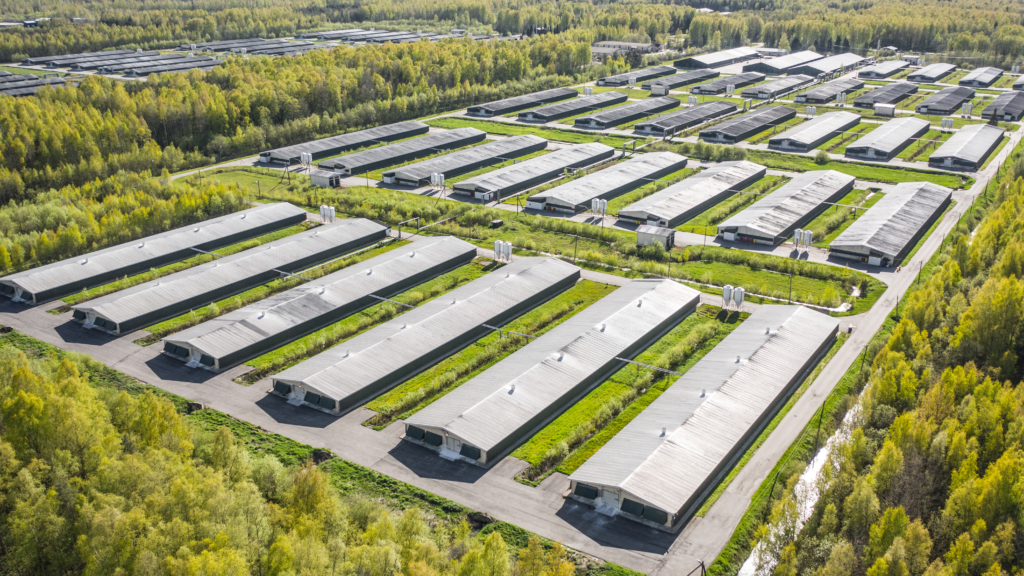
We then set up two groups:
Control Group: Followed traditional methods, including standard vaccines and farm protocols
Test Group: Same conditions as control group. But Monitored with SENTINEL X technology to enhance immune response and prevent ND.
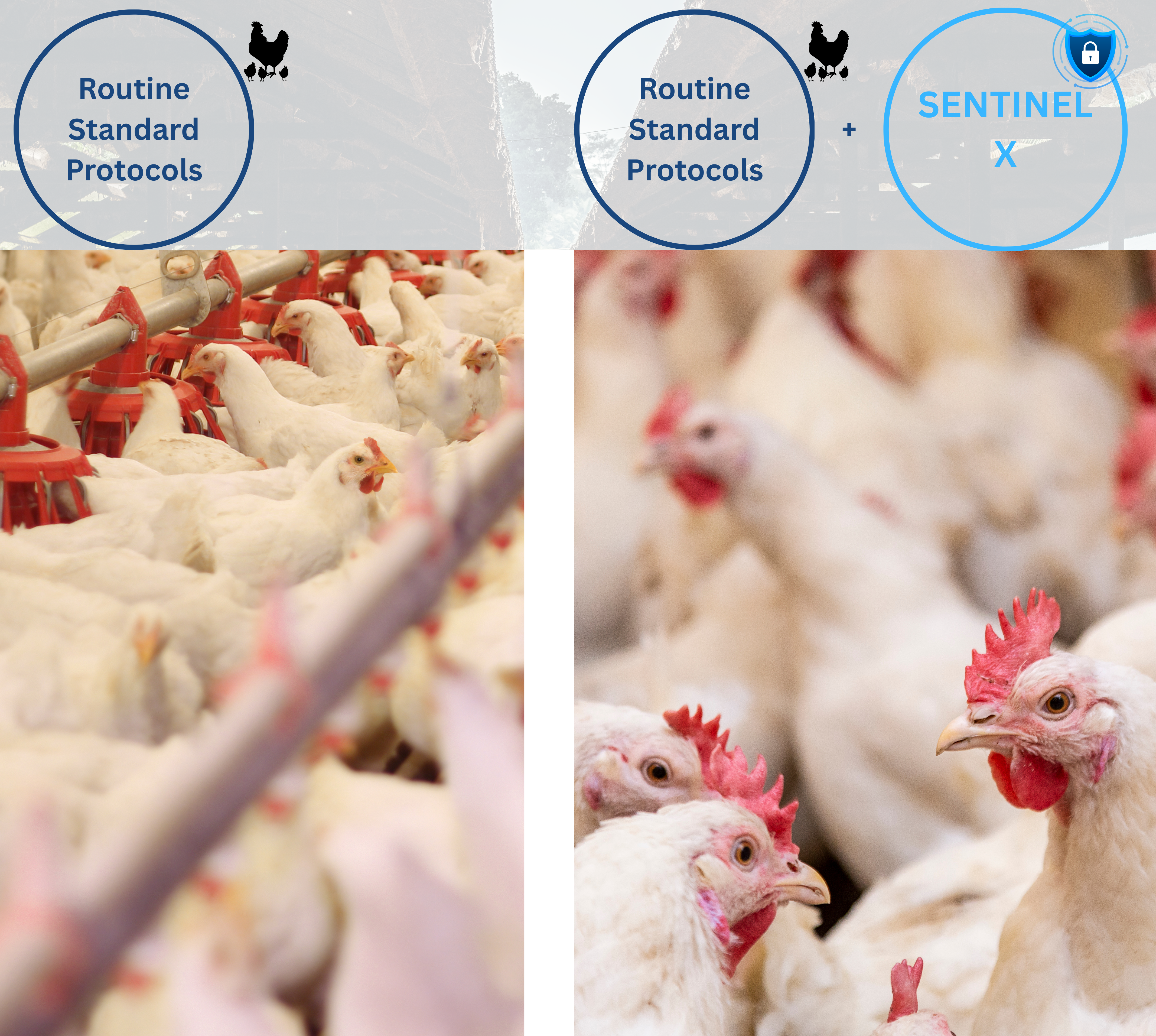
The Results
After anti-body titer tests the results were shockingly clear, in the groups monitored by SENTINEL X we saw:
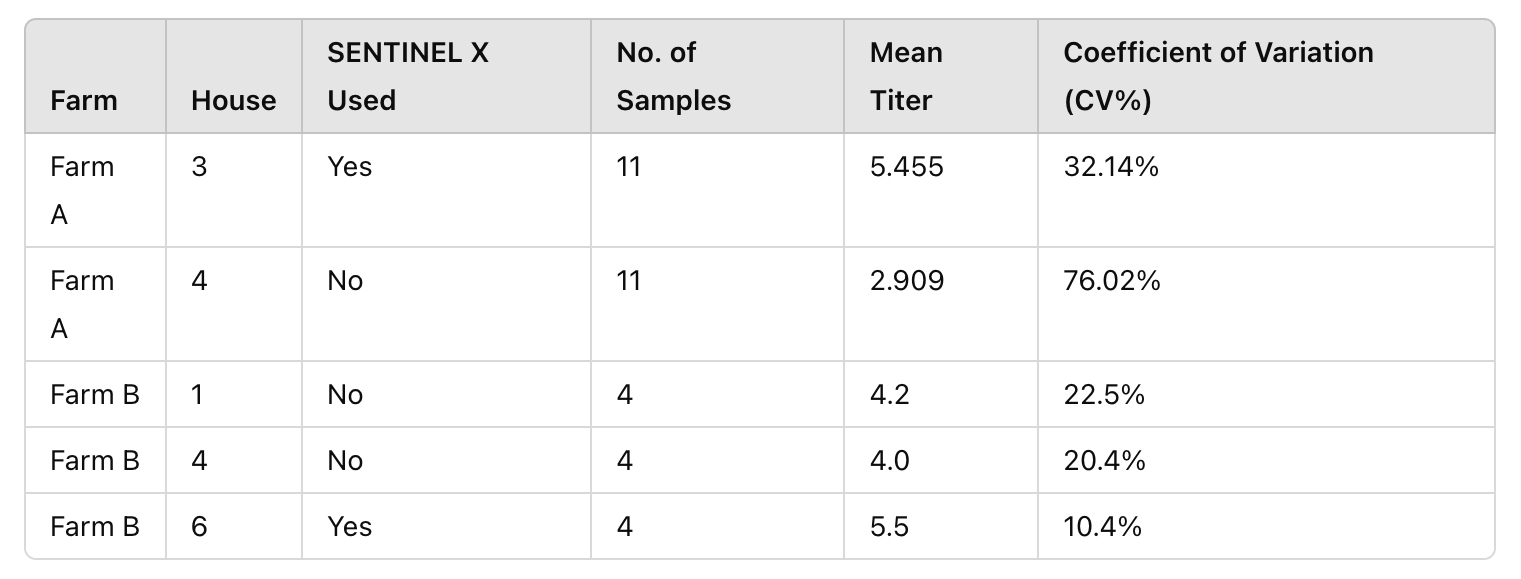
Significant improvement in immunity and disease prevention compared to traditional methods
Significant improvement in egg yields and quality
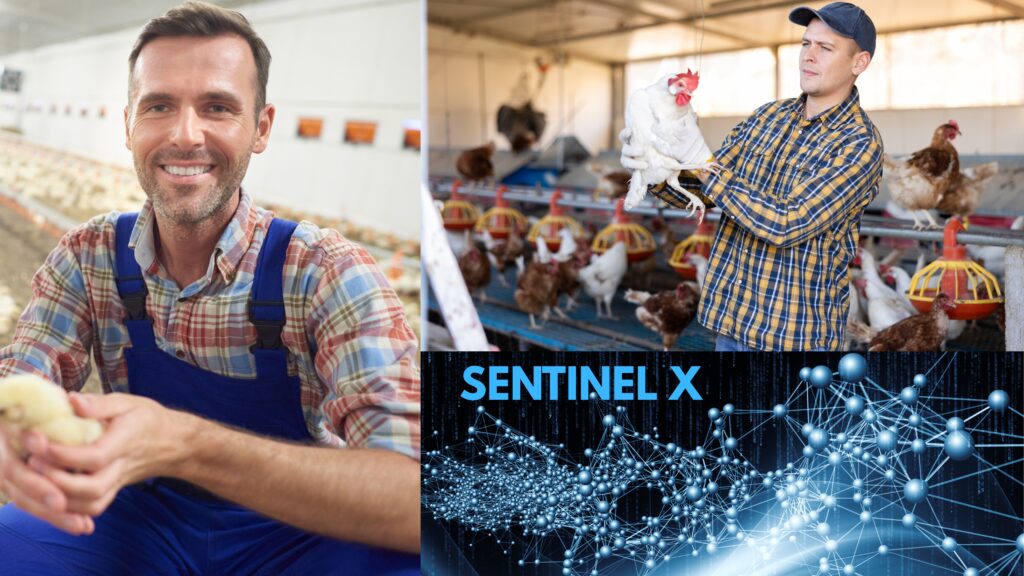
NO outbreaks and a more sustainable approach to managing ND in poultry
Enhanced long-term protection without relying solely on vaccines
